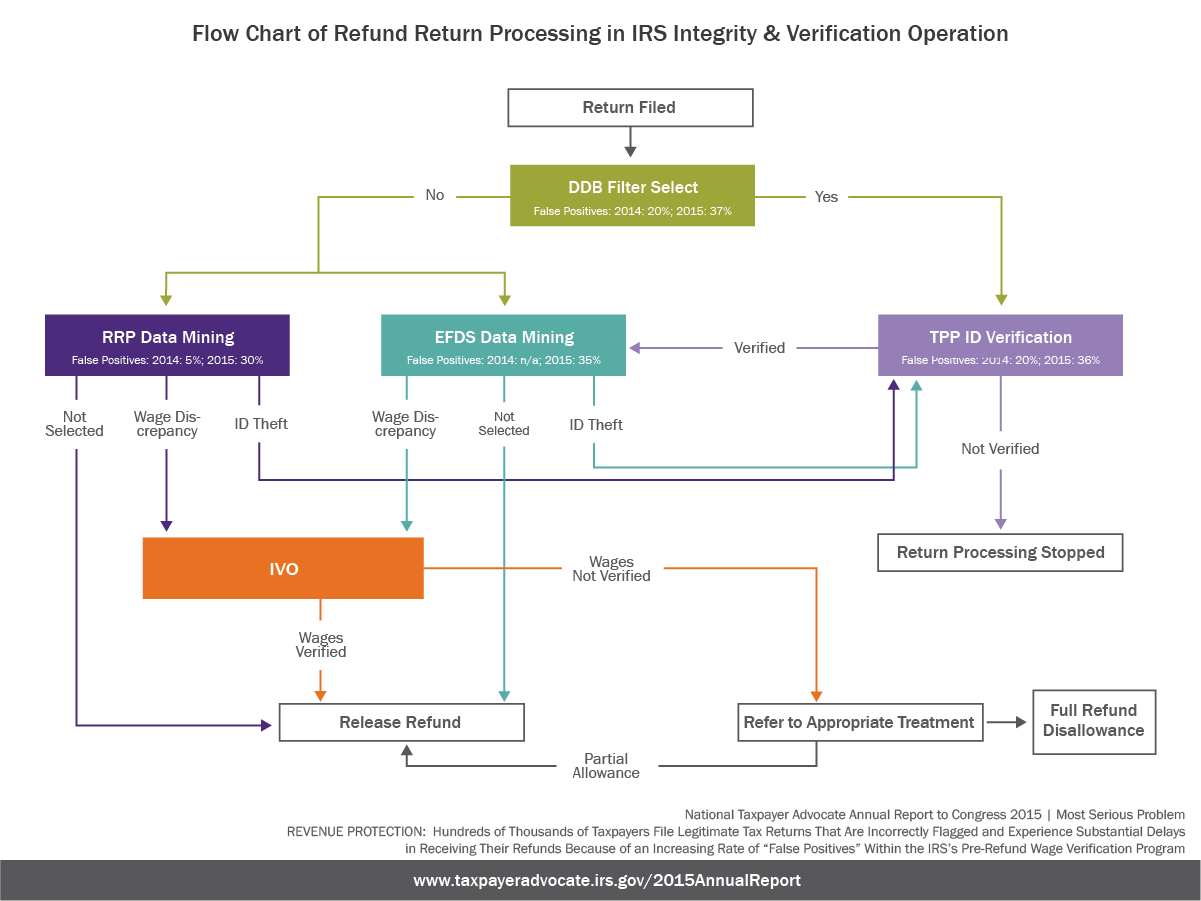
REVENUE PROTECTION: Hundreds of Thousands of Taxpayers File Legitimate Tax Returns That Are Incorrectly Flagged and Experience Substantial Delays in Receiving Their Refunds Because of an Increasing Rate of “False Positives” Within the IRS’s Pre-Refund Wage Verification Program
In general, the IRS uses the Pre-Refund Wage Verification (or Income Wage Verification, IWV) program to temporarily freeze an individual’s refund when it detects potentially false wages and withholding. The National Taxpayer Advocate first expressed concerns with the IRS’s inability to properly identify, process, and timely release refund freezes in 2003. Despite certain improvements, such as technological advances and procedural and policy changes, the IRS’s screening processes in this program continue to harm taxpayers with legitimate returns. TAS’s analysis of the population of taxpayers filing for tax year 2014, whose returns the Electronic Fraud Detection System (EFDS) selected for review in 2015 (through October), showed that nearly 180,000 such taxpayers who finally received their refunds experienced delays on average of nearly 18 weeks. EFDS had a “false positive” rate of almost 35% in fiscal year 2015. While workload in the IWV program decreased by 47% in calendar year (CY) 2015, TAS received 36,752 IWV cases in the first nine months of CY 2015, making it the second most common reason taxpayers came to TAS. TAS provided full or partial relief for almost four out of five taxpayers who contacted TAS about delayed refunds flagged under the IWV program and IWV holds.
The National Taxpayer Advocate acknowledges that any screening method will result in false positives but remains concerned that the IRS does not track the false positive rates for this program and does not have adequate procedures to promptly review and adjust its fraud detection filters, rules, and models. Additionally, taxpayers whose refunds the IWV program freezes cannot reach a live assistor in the Integrity & Verification Operation (IVO) unit. As a result, the taxpayers’ rights to be informed, to quality service, to challenge the IRS’s position and be heard, to privacy, and to a fair and just tax system are jeopardized.

“The National Taxpayer Advocate first expressed concerns with the IRS’s inability to properly identify, process, and timely release refund freezes in 2003. Despite certain improvements, such as technological advances, and procedural and policy changes, the IRS’s screening processes in this program continue to harm taxpayers with legitimate returns.”